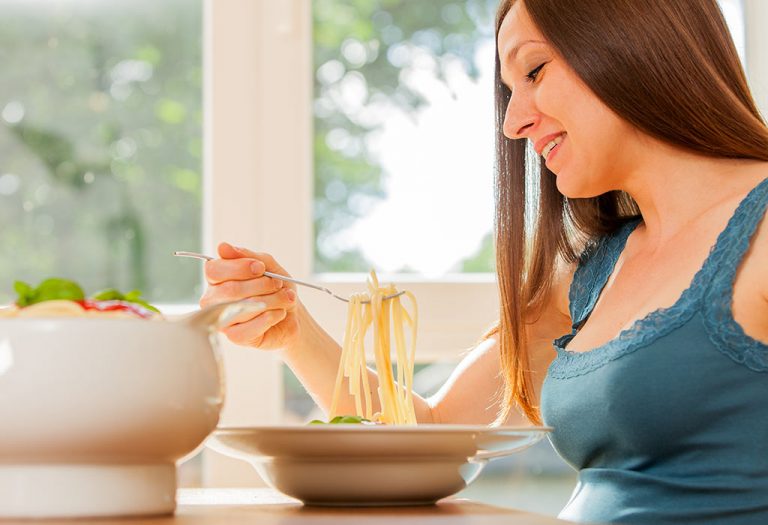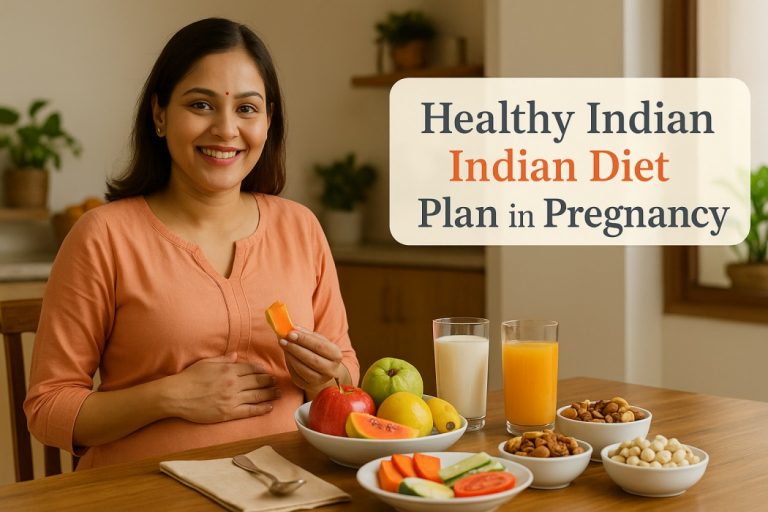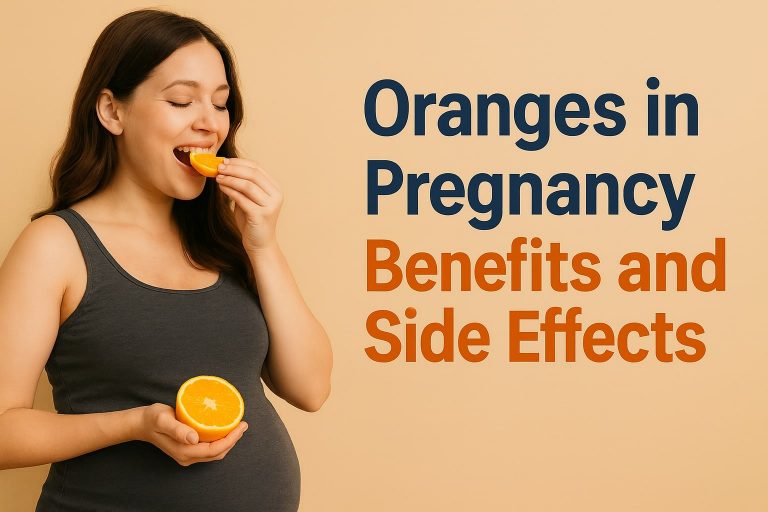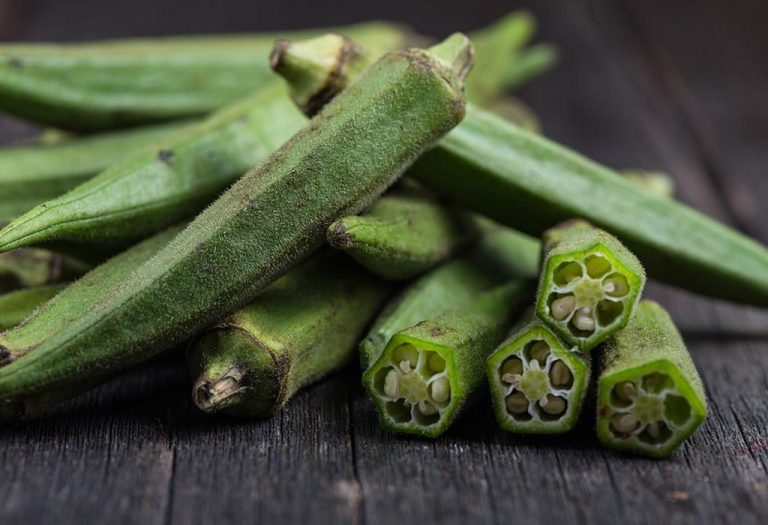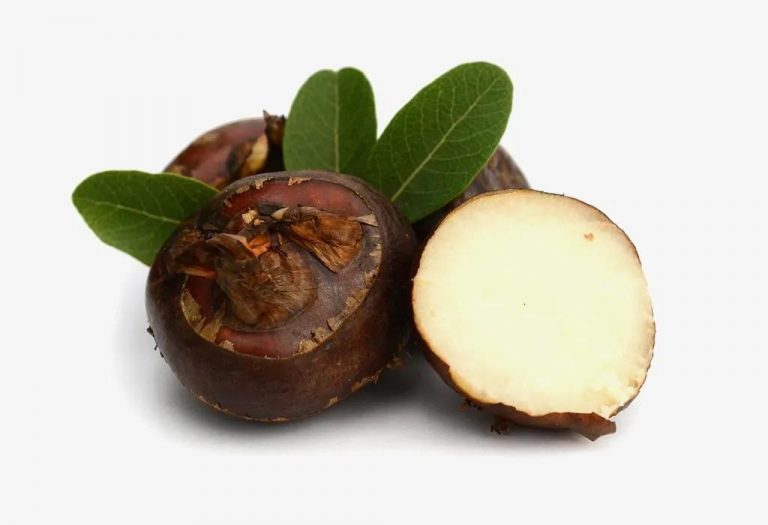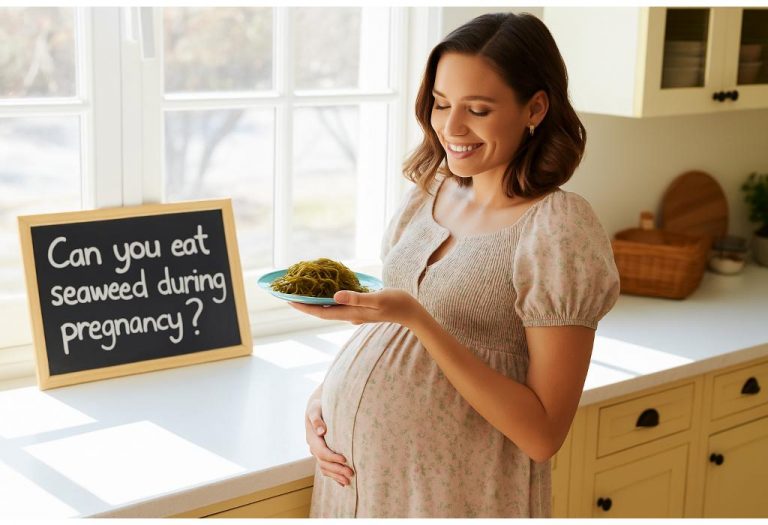Eating Pasta During Pregnancy – Is It Safe?

Pasta is undeniably one of the most beloved Italian dishes, cherished for its versatility and comforting flavors. Whether adorned with a creamy white sauce or bathed in a tangy red marinara, a steaming plate of pasta holds a special place in the hearts and palates of people worldwide. However, amidst the joy of indulging in this culinary delight, expectant mothers may wonder – is it safe to eat pasta during pregnancy? Understanding the nutritional aspects and potential concerns surrounding pasta consumption during this delicate period is crucial for maternal health and the well-being of the growing fetus. Let’s delve deeper into this topic – Eating pasta in pregnancy.
Pasta’s Nutritional Contents
Pasta is a staple in many diets worldwide, cherished for its taste and versatility. When considering its suitability during pregnancy, understanding its nutritional content is essential.
Pasta primarily consists of wheat flour, water, and occasionally eggs, constituting a substantial reservoir of complex carbohydrates crucial for sustaining energy levels. Furthermore, it boasts essential nutrients like B vitamins, iron, and folate, essential for overall health. While pasta is generally recognized as a nutritious option, prioritizing whole wheat or whole grain variations is advisable. These alternatives offer increased fiber content and a lower glycemic index, facilitating a more gradual release of glucose into the bloodstream, thereby aiding in blood sugar regulation.
Can Pregnant Women Eat Pasta?
When made using the right ingredients, pasta can be rich in vitamin A, vitamin B, fibre-rich complex carbohydrates, and folic acid. However, it is important to remember that pasta also contains lectins and phytates, which cause a nutritional deficiency of zinc and magnesium in the baby. Moreover, most pasta dishes are usually made of refined flour which is not considered to be very healthy. Pasta made with whole-grain wheat can be eaten during pregnancy, but only in moderation.
Which Type of Pasta Is Considered Good?
Pasta is tasty, cheap, and easy to cook. However, it is not considered to be very nutritious. Does this mean we should stop eating pasta? No. Today, there are a ton of healthier alternatives available that can up the nutritional value of this dish. A few of them are listed below.
1. Whole Wheat Pasta
Whole wheat pasta is a healthy alternative to the pasta made from refined flour as it contains a lot of fibre and protein. This reduces the risk of obesity, heart disease, type II diabetes, and a few types of cancer. However, people who are sensitive to gluten or have celiac disease should still avoid it.
2. Quinoa Pasta
Quinoa pasta is made from flour that is produced by grinding quinoa seeds. Quinoa pasta is protein-rich, contains a good amount of iron and magnesium, and is gluten-free, which makes it the best and healthiest among all types of pasta. It is also said to reduce blood sugar, insulin, and triglyceride levels.
3. Spelt Pasta
Spelt is a grain that is closely related to (but is not) wheat. Spelt pasta is high in fibre and rich in protein. It contains a moderate amount of gluten. Therefore, people with gluten sensitivity should avoid it. However, people with mild gluten intolerance can eat it.
4. Brown Rice Pasta
Brown rice pasta is ideal for people suffering from Irritable Bowel Syndrome (IBS). It is gluten-free and free of FODMAP (fermentable oligosaccharides, disaccharides, monosaccharides and polyols) – i.e molecules that cannot be absorbed by people suffering from IBS.
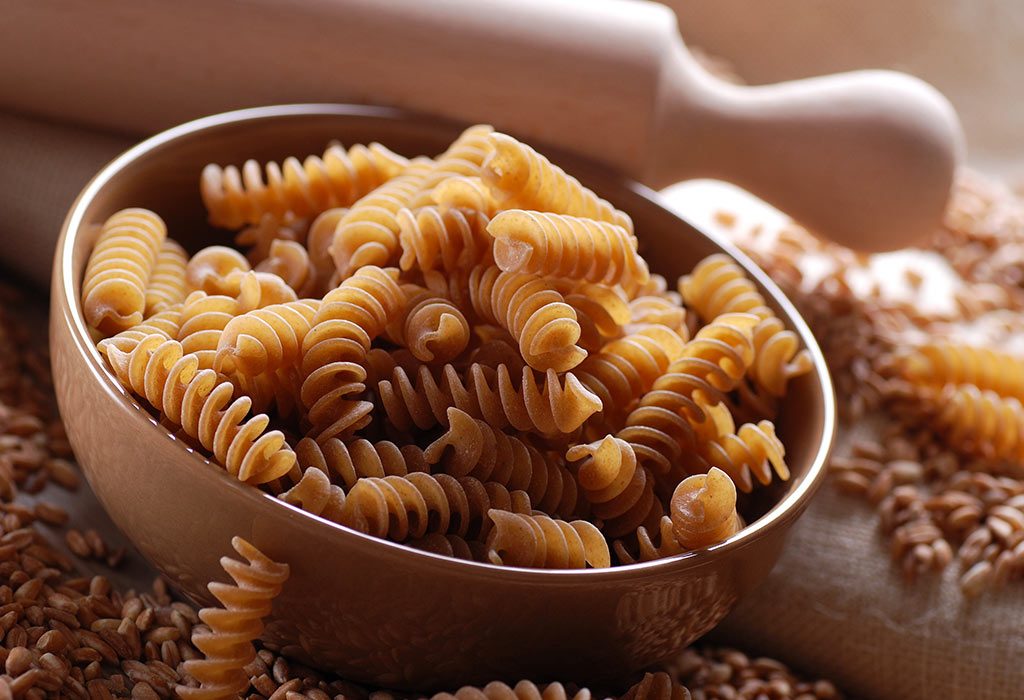
Are There Any Health Benefits of Having Pasta for Pregnant Women?
Pasta is filling and nutritious if made the right way and with the right contents. Listed below are 8 benefits of healthy pasta for pregnancy.
1. Rich in Fibre
Multigrain pasta made with a whole lot of vegetables and leafy greens like spinach and kale can be a good source of fibre and minerals.
2. Free of Gluten
If you have been advised to go gluten-free, you can eat brown rice pasta and quinoa pasta. As discussed above, these kinds of pasta are gluten-free and thus safe for people with IBS or other gastro problems.
3. Keeps Blood Pressure and Blood Sugar in Check
Whole wheat pasta, quinoa pasta, and sprouted-grain pasta are said to keep blood sugar levels and blood pressure levels in check. Quinoa pasta, in particular, reduces the chances of obesity, thus cutting down the risk of heart disease and gestational diabetes in pregnant women.
4. Rich in Folic Acid and Iron
Whole wheat pasta is rich in folic acid and iron, which are some of the most essential nutrients for the baby’s overall development in the mother’s womb.
5. Improves Bowel Movement
Pasta made from whole wheat grain flour and quinoa flour contain ample fibre. Adding green leafy vegetables to the dish aids in improved bowel movements, thereby preventing common pregnancy problems like constipation and haemorrhoids.
6. Increases Energy Level
The carbohydrate content in pasta helps elevate the energy levels in pregnant women and keeps them active.
7. Prevents Infections
The vitamin A content in pasta prevents several types of infections during pregnancy.
8. Supports Brain Development
Pasta enriched with omega-3 fatty acids, such as those made with whole wheat or fortified with flaxseed, contributes to the development of the baby’s brain and nervous system.
9. Reduces Risk of Neural Tube Defects
Folic acid found in pasta, especially whole wheat varieties, plays a crucial role in preventing neural tube defects like spina bifida, enhancing the baby’s neural development.
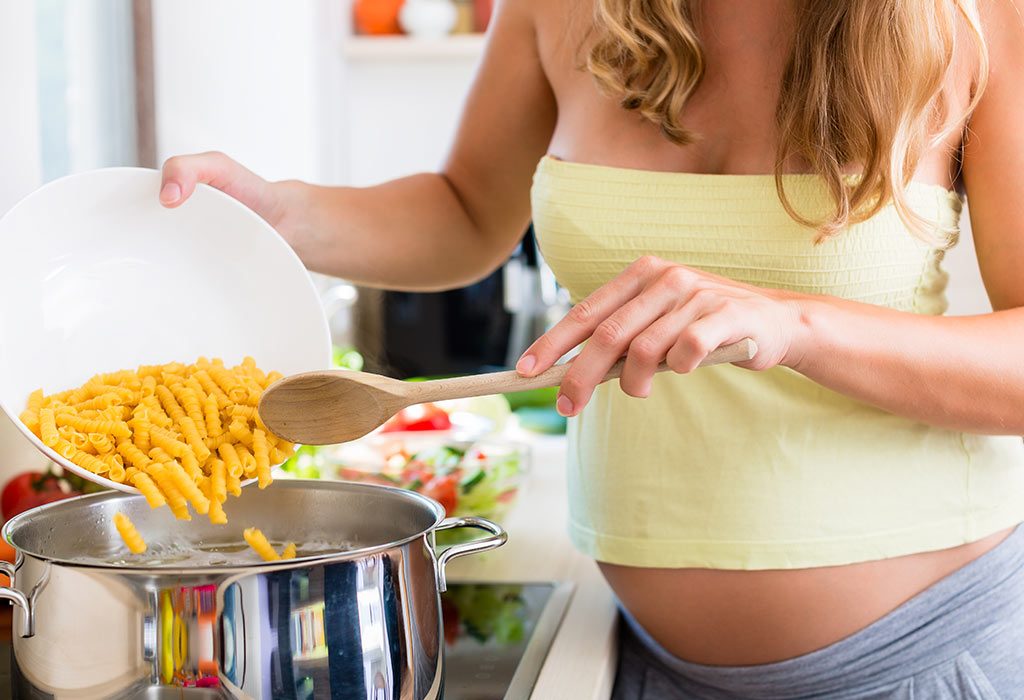
Risks of Eating Pasta While Pregnant
Here are some risks attached to eating pasta during pregnancy.
1. Contains Phytates and Lectins
Pasta contains phytates and lectins. Phytates block the body from absorbing magnesium and zinc, two of the much-needed nutrients required during pregnancy. Lectins encourage the passage of toxins from unhealthy food into the blood.
2. Presence of Gluten
Gluten is present in most types of pasta. Therefore, people who are gluten-sensitive or suffer from IBS or Celiac disease should avoid eating pasta. Eating too much gluten can also cause problems in women who only show signs of allergies as it can aggravate the symptoms and cause problems.
3. Weight Gain
Gaining too much weight during pregnancy could lead to complications during labour. Therefore, pregnant women should refrain from eating foods that can cause weight gain, one of which is pasta.
4. Presence of Iron
Iron intake prevents anaemia, but on the flip side, too much iron can cause constipation which can cause haemorrhoids.
5. Increase in Blood Sugar
According to the TOSCA.IT study, pasta made from refined wheat flour can cause a spike in your blood sugar levels if one suffers from diabetes (1). Therefore, eating pasta made from whole wheat grain flour or quinoa flour is advisable.
How to Handle Pasta Cravings While Pregnant?
Craving pasta during pregnancy? Cravings are a part and parcel of pregnancy. However, pasta is a dish that has high carbohydrate and (often) gluten content and should be avoided in most situations. If you absolutely cannot control your cravings, here are a few ways to handle them:
- Try putting more veggies and less pasta while cooking. This way, you will be able to satiate your cravings and also eat healthily.
- Take small helpings. Do not eat a lot in one go.
- Instead of going for the white sauce pasta, go for a healthier red sauce pasta or a simple olive oil pasta.
- Use whole-wheat pasta or quinoa pasta in your dish instead of refined white flour pasta.
Healthy Pasta Recipes for Pregnant Women
Here are two pasta recipes to help you eat healthily and manage your cravings.
1. Spicy Shrimp Tomato Pasta
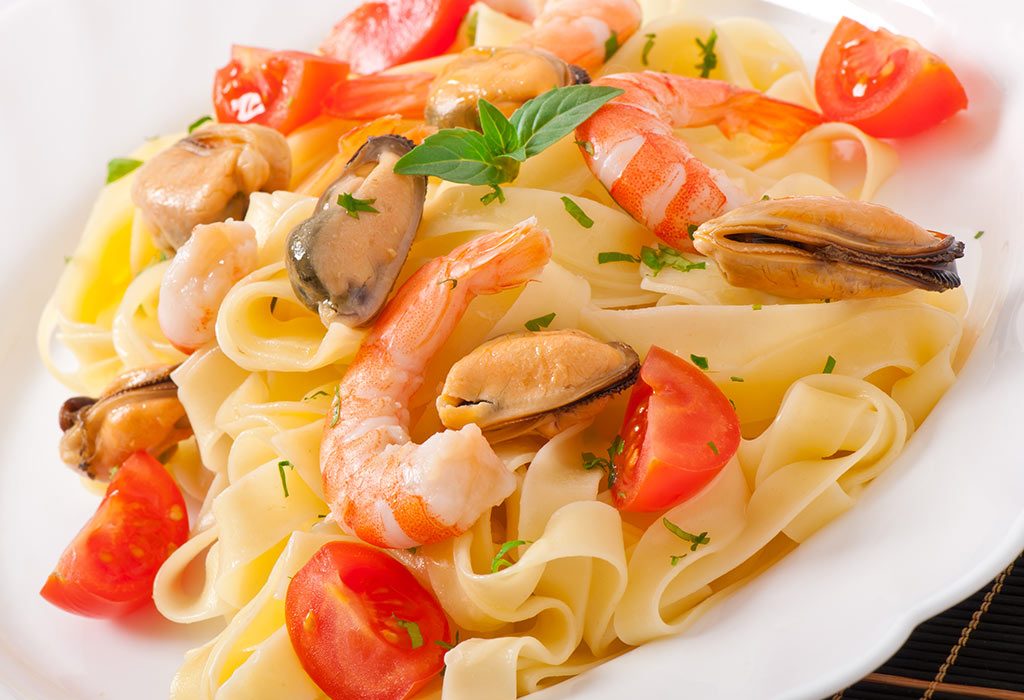
This is a simple and tasty pasta recipe for non-vegetarian food lovers. It is easy to cook and the ingredients are easily available.
What You Will Need
- Whole-wheat/quinoa/brown rice pasta – 200 g
- Olive oil – 2 tbsp
- Garlic – 4-5 cloves
- Shrimp/prawns (deveined and cleaned) – 100 g
- Fresh tomatoes (diced) – 3-4
- Red pepper flakes (optional)
- Cracked pepper
- Fresh coriander leaves (chopped roughly)
- Butter – 2 tbsp
- Salt to taste
Instructions to Follow
- Cook the pasta in a large bowl of boiling water according to the package instructions.
- Drain the pasta in a colander and set aside.
- Heat a pan and add in the olive oil and butter. Crush the garlic and fry it in the pan. Once the garlic is fried, add in the shrimp.
- Sauté the shrimp for a few minutes and take them out of the pan. Keep aside.
- Pour in the diced tomatoes, red pepper flakes, and add in the cracked pepper.
- When the tomatoes get cooked and form a sauce-like consistency, add in the cooked pasta and fried shrimp.
- Cook the pasta in the sauce well and add in salt. Stir well.
- Turn off the heat and add coriander leaves. Serve hot.
2. Veggie Pasta
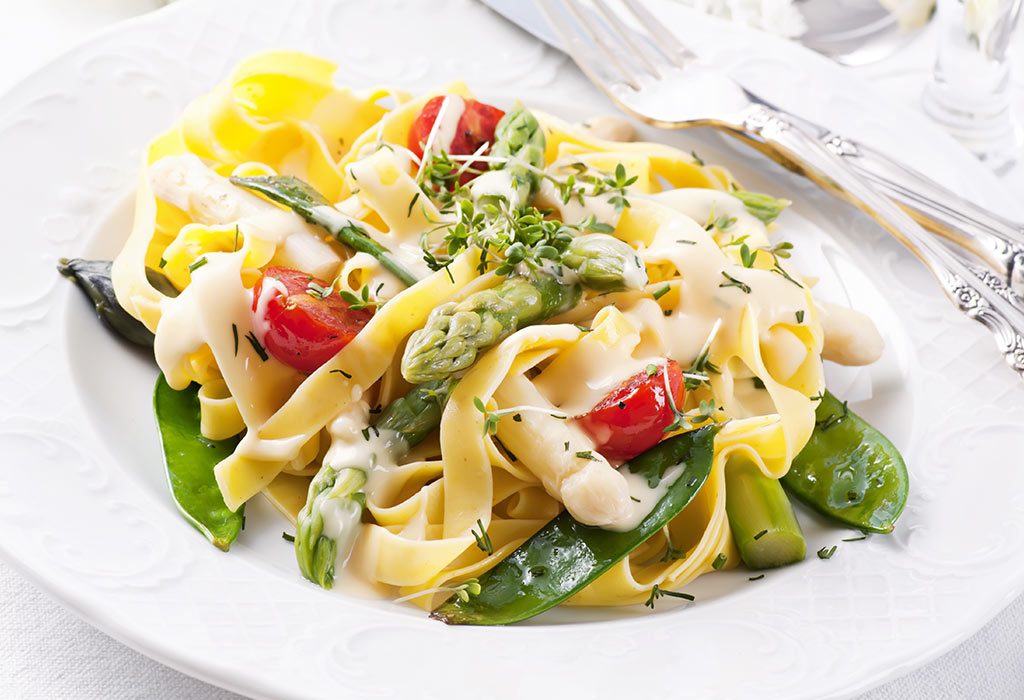
This simple and light pasta dish is exactly what you need during your pregnancy.
What Will You Need
- Quinoa pasta/whole-wheat pasta/brown rice pasta – 4 cups
- Broccoli florets – 4-5
- Carrots (diced) – 1/4 cup
- Red bell pepper (thinly sliced) – 1/4 cup
- Onion (thinly sliced) – 1/4 cup
- Garlic (finely diced) – 3-4 cloves
- Zucchini (thinly sliced) – 1/4 cup
- Cherry tomatoes – ½ cup
- Green peas – ½ cup
- Parmesan cheese (grated) – ½ cup
- Olive oil – 4 -5 tbsp
- Salt to taste
Instructions to Follow
- In a large vessel, bring the water to boil and cook the pasta. After the pasta turns tender, put it in cold water.
- Then, in a large pan, put the oil. Once the oil is heated, put the crushed garlic. Fry it till the raw smell goes away.
- Add the onions and fry till they turn brown. Then add the broccoli (semi-cooked), carrot, red bell peppers, peas, and zucchini. Sauté for a few minutes till the veggies turn soft. Add in the cherry tomatoes.
- Add the pasta and salt.
- Mix all the ingredients together. Add the grated cheese in the end, and serve hot.
3. Quinoa Pasta Salad With Lemon-Herb Dressing
Elevate your salad game with this refreshing blend of quinoa pasta and vibrant vegetables, drizzled with zesty lemon-herb dressing.
What Will You Need
- 1 cup quinoa pasta
- Mixed salad greens (spinach, arugula, kale)
- Cherry tomatoes, halved
- Cucumber, sliced
- Red onion, thinly sliced
- Feta cheese, crumbled
- Fresh herbs (parsley, basil, mint), chopped
- Lemon juice
- Olive oil
- Salt and pepper to taste
Instructions to Follow
- Cook the quinoa pasta according to package instructions. Drain and let cool.
- In a large bowl, combine the cooked quinoa pasta with mixed salad greens, cherry tomatoes, cucumber, red onion, and crumbled feta cheese.
- In a small bowl, whisk together lemon juice, olive oil, salt, pepper, and chopped fresh herbs to make the dressing.
- Drizzle the dressing over the pasta salad and toss gently to combine.
- Serve chilled or at room temperature as a refreshing and nutritious meal option for pregnant women.
4. Spinach and Ricotta Stuffed Shells
Delight in these delectable jumbo pasta shells generously stuffed with a creamy spinach and ricotta filling, baked to perfection in savory marinara sauce.
What Will You Need
- 1 box jumbo pasta shells
- 2 cups ricotta cheese
- 1 cup chopped spinach
- 1 egg
- 1/2 cup grated Parmesan cheese
- 1 teaspoon garlic powder
- Salt and pepper to taste
- Marinara sauce
- Shredded mozzarella cheese
Instructions to Follow
- Cook the jumbo pasta shells according to package instructions until al dente. Drain and set aside.
- In a mixing bowl, combine ricotta cheese, chopped spinach, egg, grated Parmesan cheese, garlic powder, salt, and pepper.
- Preheat the oven to 375°F (190°C).
- Stuff each cooked pasta shell with the spinach and ricotta mixture and place them in a baking dish.
- Pour marinara sauce over the stuffed shells and sprinkle with shredded mozzarella cheese.
- Cover the baking dish with foil and bake in the preheated oven for 25-30 minutes, or until the cheese is melted and bubbly.
- Serve hot, garnished with fresh basil leaves if desired. Enjoy this comforting and nutritious pasta dish during pregnancy.
Guidelines for Safely Cooking and Serving Pasta Rightly When Pregnant
During pregnancy, proper food handling and cooking techniques are crucial to ensure the safety of both the mother and the unborn child. This is especially important when it comes to preparing pasta dishes. Here are some guidelines for safely cooking and serving pasta during pregnancy:
- Cook pasta thoroughly until it is firm but tender, ensuring there are no raw or undercooked portions.
- Use separate utensils and cutting boards for raw ingredients, such as meat or seafood, to prevent cross-contamination.
- Store cooked pasta in the refrigerator within two hours of preparation to minimize the risk of bacterial growth.
- Reheat leftover pasta dishes until they are steaming hot all the way through, reaching an internal temperature of 165°F (74°C).
- Avoid consuming unpasteurized cheeses or dairy products in pasta dishes, as they may harbor harmful bacteria such as Listeria.
- Opt for homemade pasta sauces prepared with fresh ingredients, or ensure store-bought sauces are heated thoroughly before serving.
- Practice good hygiene by washing hands, utensils, and surfaces frequently during pasta preparation to prevent foodborne illnesses.
FAQs
1. Can I eat pasta during pregnancy if I have gestational diabetes?
Yes, you can still enjoy pasta during pregnancy if you have gestational diabetes. Opt for whole wheat or whole grain pasta varieties and pair them with lean proteins and vegetables to help regulate blood sugar levels.
2. Is it safe to eat cold pasta salad while pregnant?
Cold pasta salad can be safe to eat during pregnancy if it has been prepared and stored properly. Ensure that all ingredients are fresh, and if using perishable items like mayonnaise or cheese, refrigerate the salad promptly and consume it within a day or two.
3. Can I eat pasta with raw eggs in the sauce while pregnant?
It is not recommended to consume pasta sauces containing raw eggs during pregnancy due to the risk of salmonella contamination. Opt for cooked sauces or use pasteurized egg products to ensure safety.
4. Are there any pasta toppings or ingredients I should avoid during pregnancy?
While pasta itself is generally safe to eat during pregnancy, it’s essential to avoid certain toppings or ingredients that may pose a risk. These include unpasteurized cheeses, cured meats, and raw or undercooked seafood.
This was all about pasta and pregnancy. Just like other foods, pasta should be consumed with caution during pregnancy. If you would like, you can also consult with your doctor regarding the consumption of pasta during pregnancy second trimester, first trimester and even third. Too much of it could result in obesity, high blood pressure, or a rise in blood sugar levels which may further cause problems during labour or pose a risk to the baby in your womb. Remember that taking care of your eating habits during pregnancy goes a long way in giving birth to a healthy baby.
References/Resources:
1. Vitale. M, Masulli. M, Rivellese. A, Bonora. E, et. al.; Pasta Consumption and Connected Dietary Habits: Associations with Glucose Control, Adiposity Measures, and Cardiovascular Risk Factors in People with Type 2 Diabetes—TOSCA.IT Study (Nutrients); National Library of Medicine; https://www.ncbi.nlm.nih.gov/pmc/articles/PMC7019547/; January 2020
2. Chen. X, Zhao. D, Mao. X, Xia. Y, Baker. P, et. al.; Maternal Dietary Patterns and Pregnancy Outcome (Nutrients); National Library of Medicine; https://www.ncbi.nlm.nih.gov/pmc/articles/PMC4924192/; June 2016
3. Ito. M, Maruyama-Funatsuki. W, Ikeda. T, Nishio. Z, et. al.; Evaluation of fresh pasta-making properties of extra-strong common wheat (Triticum aestivum L.) (Breeding Science); National Library of Medicine; https://www.ncbi.nlm.nih.gov/pmc/articles/PMC3528331/; December 2012
4. Pregnancy and diet; Better Health Channel; https://www.betterhealth.vic.gov.au/health/healthyliving/pregnancy-and-diet
5. Ease Nausea with Natural Remedies; Nationwide Children’s Hospital; https://www.nationwidechildrens.org/family-resources-education/family-resources-library/ease-nausea-with-natural-remedies
6. Hill. A, Cairnduff. V, McCance. D; Nutritional and clinical associations of food cravings in pregnancy; Wiley Journal of Human Nutrition and Dietetics; https://www.ncbi.nlm.nih.gov/pmc/articles/PMC5054961/; June 2016
Burgers when Pregnant
Eating Pizza during Pregnancy
Junk Food while Pregnant
Is It Safe to Eat Chicken during Pregnancy?
Was This Article Helpful?
Parenting is a huge responsibility, for you as a caregiver, but also for us as a parenting content platform. We understand that and take our responsibility of creating credible content seriously. FirstCry Parenting articles are written and published only after extensive research using factually sound references to deliver quality content that is accurate, validated by experts, and completely reliable. To understand how we go about creating content that is credible, read our editorial policy here.






